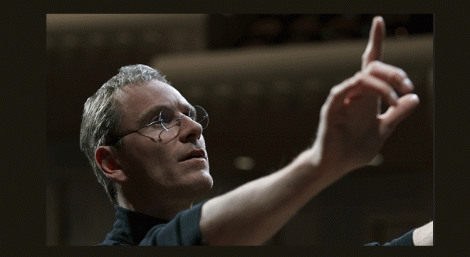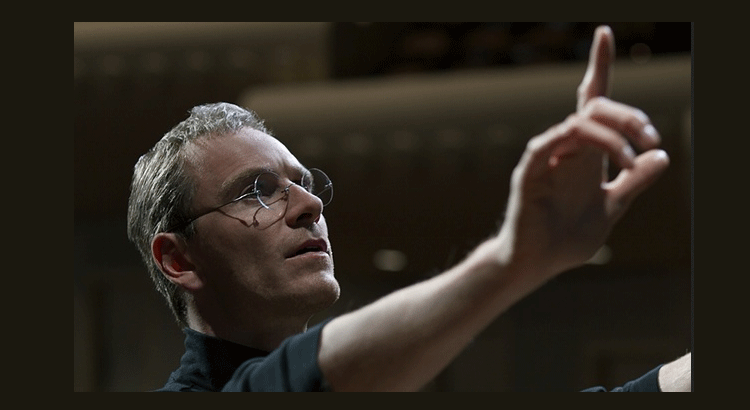The launch of Danny Boyle’s new movie about Steve Jobs, with Michael Fassbender has resulted in another round of articles about Jobs – somehow perfectly timed with a new Apple product launch!
The first bug discussion point was the old trop about the degree to which Apple’s success was rooted in Jobs as a ‘brand’.
The concept of Apple’s success was definitively rooted in using Steve Jobs as a ‘brand’. Indeed, it is one of the best strategies for any business: use the figurehead of the organisation as a ‘humanising’ element of (typically faceless) corporations. Then develop the personality of the business around that person, and cue – acres of press column inches.
This is a very simple but effective strategy, for one reason: people buy from other people. You can point to a name in the organisation and know who they are. Apple are really a technology company. But, outside industry insiders, who can name the heads of other tech or mobile organisations in the past and present who had similar products such as laptops, mobile phones and software to Apple?
Who is the CEO of HP? Who is the CEO of Dell? Who was the Nokia CEO when they were the biggest mobile phone company, and a huge brand? Who is the head of Sony? One of the few exception is Bill Gates, but I would argue that he is more famous for being one of the world’s richest men, that his ability to sell Microsoft (he handed over the CEO reins to Steve Ballmer in 2000).
A very simple example closer to home is none other than Michael O’Leary of Ryanair – who uses the power of personality to gain coverage for his firm. Name me the current CEO of competing airlines such as BA (it’s not Willy Walsh for the last 3 years), Air France, EasyJet, FlyBe, KLM etc. …..QED!
Jobs, however, really refined this to a great degree, and that is why he became famous for his salesmanship. He did what all great salespeople do, and sold dreams, not products, and created new experiences. He did not just sell computers or phones. Jobs real brand insight was the promise of a better world, and tools to enrich people’s lives.
Again, whereas most CEOs use boring language like “best of breed” or “synergy”, Jobs created a single sentence description for products, for example, with the MacBook Air in January, 2008, he said that is it simply, “The world’s thinnest notebook’ and demonstrated this by showing a slide of the computer fitting inside an office envelope.
Another meme going around since Jobs death was; how would the company survive? At a pure financial level, Apple have done pretty well. Jobs died in October, 2011. Apple shares were around $50 per share, today they are $112 – well over double in less than 4 years. If you had bought one share of Apple that day, you would have made 1.2- to 1.3 times your money.
Not bad 🙂
The most recent quarterly results showed a $49.6 billion for that quarter v $28.27bn for the same time period the year Jobs died – and that latter result was regarded as astounding.
According to the most recent quarterly numbers, Apple generates more revenue from the iPhone alone than Google, Oracle, Intel, Amazon, Microsoft, Facebook and eBay (source: http://bit.ly/1iK188C)
Indeed, sales of the iPhone per quarter of $31.4 billion most recently (not just Apple as a company) are far in excess of the total size of the music industry – $15bn for the WHOLE of 2014 (Source: Billboard.com http://bit.ly/1FJ3xp3)
Pretty good for a company that is supposed to be a one man band!
The third meme about Jobs is that people care about him being hard charging behind the scenes. Jobs risked a lot to get Apple to where it was – and people know that it’s no walk in the park to work for such leaders. Within an organisation, a founder carries a lot more weight and commands far more respect than a ‘professional manager’ does. So, people know that these sort of bosses are hardly going to be Mother Teresa.
Also, we overestimate the amount that these stories permeate to the person in the street. Does the owner of an Apple phone in Chengdu, Chiang Mai or Cahirciveen really care? No, it’s really only people on Twitter who are not representative of the man in the street. (Source: Twitter CFO – ‘stats indicate that “We’ve only reached early adopters and tech enthusiast’ – http://wrd.cm/1Y4Tl5N)
The final meme is that Steve Jobs was firmly against phablets and styluses – now of course available with the new iPad! I am sure that he would have changed as the market has changed – as has the technology available. The iPhone 6 has proven extremely popular with customers who were holding out for a bigger Apple smartphone. The 4.7-inch screen competes much better with some larger Android smartphones. Apple had previously said that Macs would never have Windows – but this was made available under Jobs command.
As the market matures, businesses always have to move with the times. Sticking with the dogmatism of four of more years ago is not the route to success in the mobile phone business. Just ask Nokia who had €24bn in mobile phone revenue in 2011 (SOURCE: Nokia Annual Report http://nokia.ly/1FJ3VUq – page 7) and no longer exists as a mobile phone brand.




